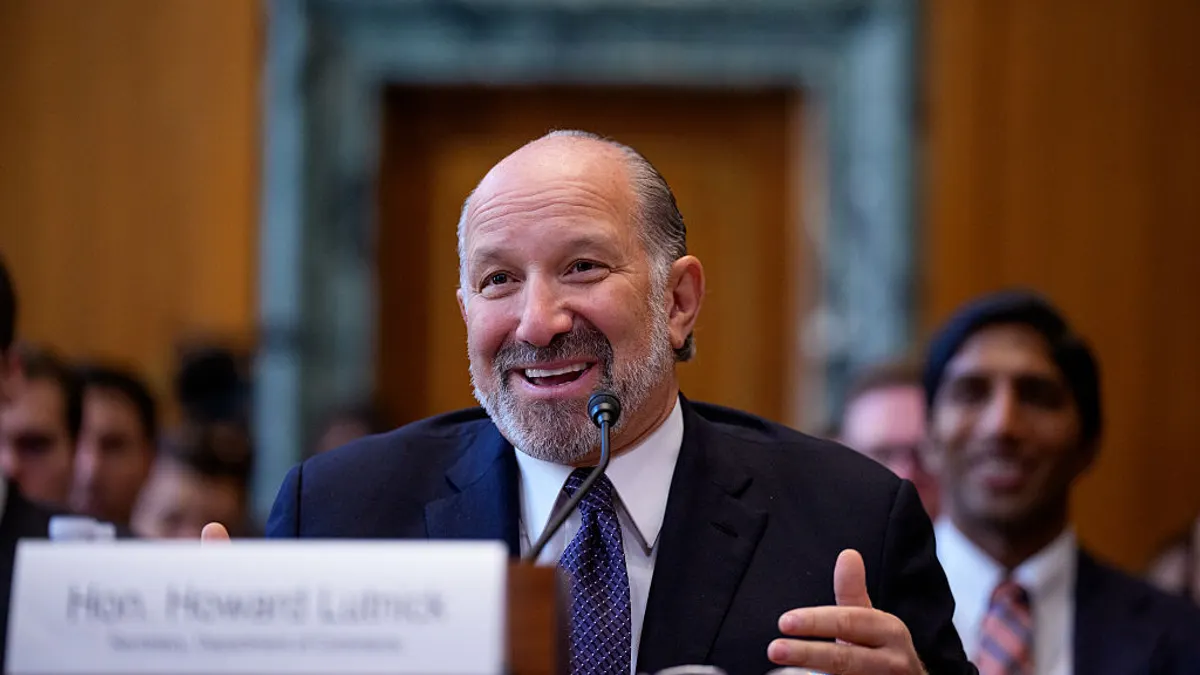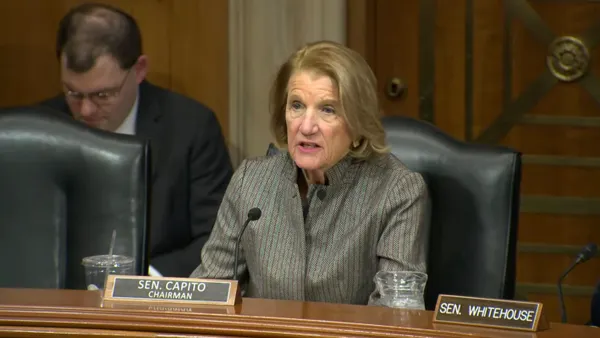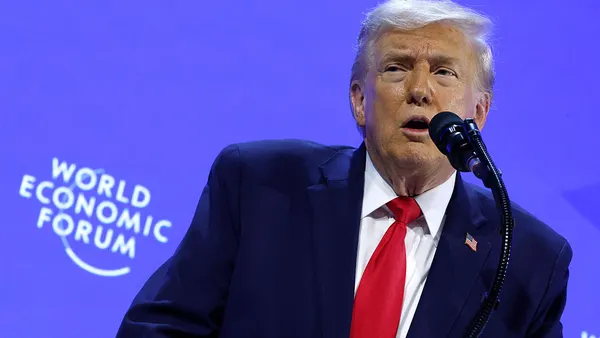The Commerce Department is renegotiating some of the multibillion-dollar contracts to chipmakers funded by the CHIPS and Science Act, Secretary Howard Lutnick said during a congressional budget hearing Wednesday.
Lutnick said that he's pushing for funding levels that amount to "4% or less" of a project's total value.
"A 10% funding just seemed overly generous and we've been able to renegotiate them," he added.
Lutnick cited the example of chipmaker Taiwan Semiconductor Manufacturing Co., which was granted $6.6 billion in CHIPS funding, deciding to increase its U.S. investments. The company unveiled plans in March to invest $100 billion in U.S. manufacturing, on top of a previously announced $65 billion.
"So if the question is, 'Are we renegotiating?' The answer is, 'Absolutely, for the benefit of the American taxpayer,'" Lutnick said.
The secretary made the comments as senators grilled him over his department's proposal to cut 16.5% of its budget, including a $325 million cut to the National Institute of Standards and Technology, which oversees CHIPS and Science Act funding programs. Lutnick was on Capital Hill Wednesday to defend the department's proposal, part of the federal funding bill currently making its way through Congress.
In its budget proposal, department officials said the cut to NIST was due to its "development of curricula that advance a radical climate agenda." The proposal called out NIST's Circular Economy Program, which advances measurement science and related initiatives to promote more sustainable circular economies and supply chains, for pushing "environmental alarmism."
While the proposal does not mention the CHIPS program, its staff and future have both been called into question by the White House.
The Trump administration has fired dozens of NIST employees that worked on CHIPS initiatives, according to a NextGov report. The president has also publicly called for an end to the law and its funding.
"Your CHIPS Act is a horrible, horrible thing. We give hundreds of billions of dollars, and it doesn't mean a thing. They take our money, and they don't spend it," Trump said in a joint address to Congress March 4.
The Biden administration rushed to finalize many of the CHIPS contracts during the former president's final weeks in office in a bid to safeguard the funding. However, it remains unclear how much of that money is actually in the hands of awardees. Companies are eligible to receive funds as their respective projects achieve certain milestones, many of which have yet to occur.
Lutnick noted during the hearing Wednesday that the department is "planning to distribute money only if we get much more building in America."
Democratic Sen. Jeff Merkley of Oregon told Lutnick during the hearing that he worries renegotiating previously finalized contracts could slow down project timelines and unsettle chipmakers that now find the status of their funding in jeopardy. Oregon is home to multiple projects that are set to receive CHIPS funding, including $1.86 billion for Intel’s campus in Hillsboro.
"To some degree you may be able to strike a better bargain, but at some point it doesn't become a better bargain and we reduce the acceleration of our re-energizing [of] the chip industry," Merkley said.
Congressional Republicans are looking to pass a Senate version of the funding bill and send it to President Trump by July 4.














